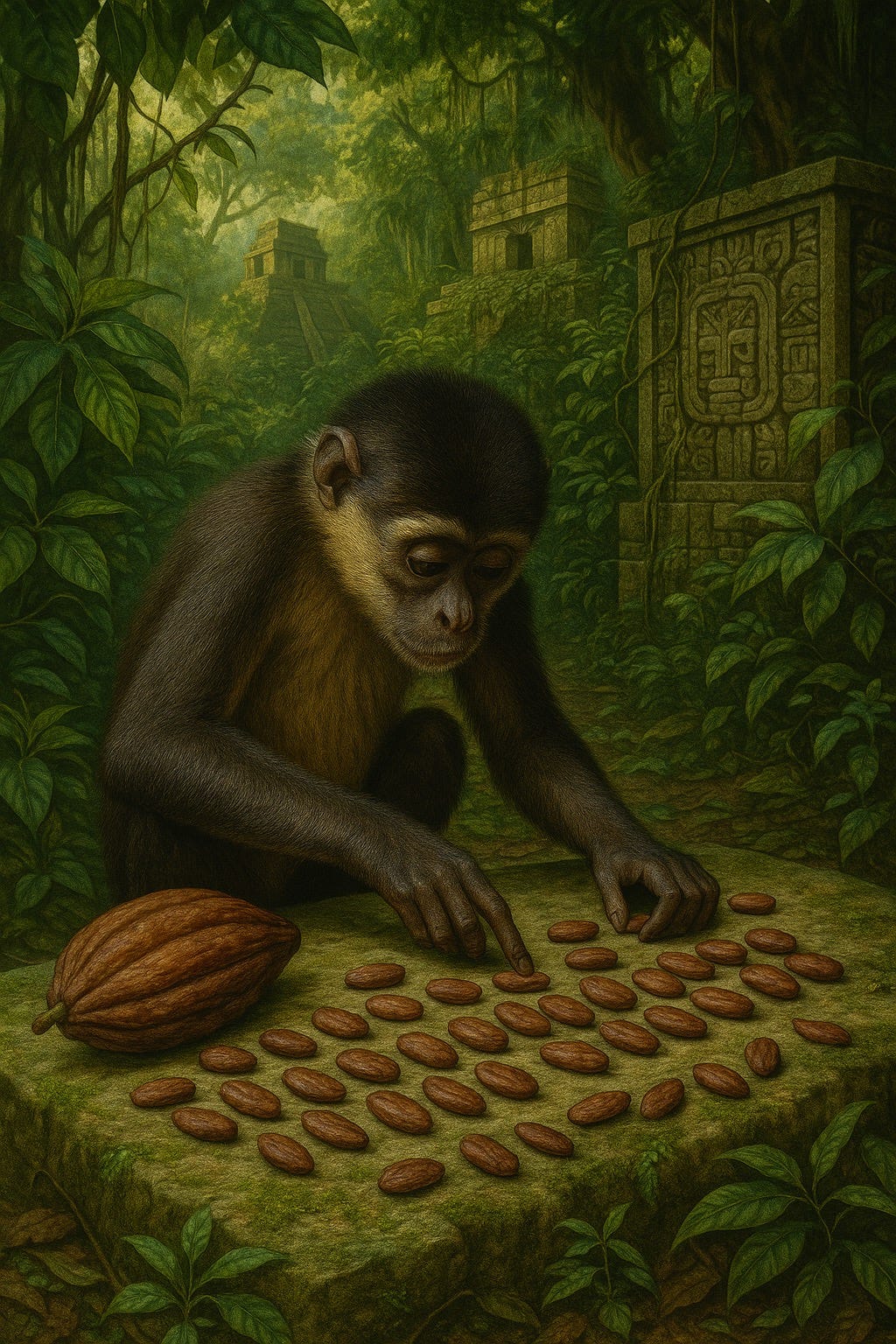Bean Counting
The Cult of Bean Counting: Wealth, Poverty, and the Invisible Cage Between
We speak of wealth like it’s a blessing, poverty like it’s a curse, and money like it’s the hinge on which both swing. But these are illusions—refined myths passed down like heirlooms, sold back to us in shiny packaging, generation after generation, like some circus act pyramid scheme. We’ve all been recruited. And we’re all still paying in.
What we’re unwilling to say out loud about money, we silently perform through spontaneous hegemony as we embody reverence for the false god of currency. It’s in the way we name-drop the wealthy, the way we automatically ascribe power and influence to those perceived as having more beans, the way we unconsciously defer to those who appear rich—whether or not they’ve earned our respect.
We confuse affluence with authority, and treat wealth like a proxy for wisdom.
Meanwhile, those we label “underserved” or “low status” often become invisible. They’re talked over, dismissed, or not even seen. But this quiet bias isn’t just anecdotal—it’s structural. Studies in behavioral economics have shown that people unconsciously assign more credibility to individuals dressed in expensive clothing, even when they say the exact same thing as someone in thrift-store clothes. In hiring, lending, even dating, wealth-signaling influences outcomes more than we like to admit.
So if you think you’re too woke to be influenced by those Calvin Klein ads, double- check your subconscious.
But here’s the real tragedy: we’re listening to the wrong stories. Because it’s not the billionaire in the boardroom whose tale adds to the soul of our species. It’s the regular man carrying groceries, drinking water and his three kids on his scooter. It’s the undocumented worker with three jobs and an unrecognized Doctorate degree in his pocket. It’s the mother flipping tortillas at dawn to send her daughter to school. The hustlers, the builders, the ordinary miracle-makers—these are the voices that carry the heartbeat of humanity.
If we had any sense, we’d turn our gaze 180 degrees. Not to romanticize poverty,
but to recognize that character, ingenuity, and grit aren’t defined by a bank account, in fact having too much money in my opinion, has contributed to the massive decline in our generation's overall wellness, character, ingenuity and creativity.
What would happen to the human race if everyone started at the same level of the game? The stories that sustain us, the ones that remind us what it means to be alive, don’t come from trust funds. They come from the trenches. No matter where you begin in life, you’re placed on the spectrum—ahead of some, behind others. I remember a game from a corporate DEI course.
“If you had reliable transportation to school, take one step forward. If neither parent went to college, take two steps back.” An easy-to-digest attempt at understanding the complexity of privilege.
A counting game to map the invisible ladder we’re all climbing. But whether you’re born into wealth or struggle, whether you’re hustling in Ghana or investing in Manhattan—everyone’s still counting beans.
I grew up in white, middle class in America. Told “no” often by frugal parents. Took life for granted, as kids do. But then came the rupture—living in Ghana in my early twenties, traveling the “3rd world”, hustling in my own realm, culture shock cracking me open. 13 Years of traveling back again and again to Africa, and marrying into that world, taught me something deeper: no matter the culture, no matter the class—money governs all.
The poorest of the poor and the wealthiest of the wealthy alike are caught in its grip.
From my travels across parts of Africa, India, Central and South America—and through countless so-called “impoverished” regions—I’ve formed a strong and unapologetic opinion: money is not positively correlated with happiness, character, wisdom, intellect or creativity. If anything, the correlation is inverse. The more you have, the more insulated, anxious, and emotionally stunted you often become. Contentment, ability, creativity, empathy and integrity, I’ve come to understand, can’t be purchased.



